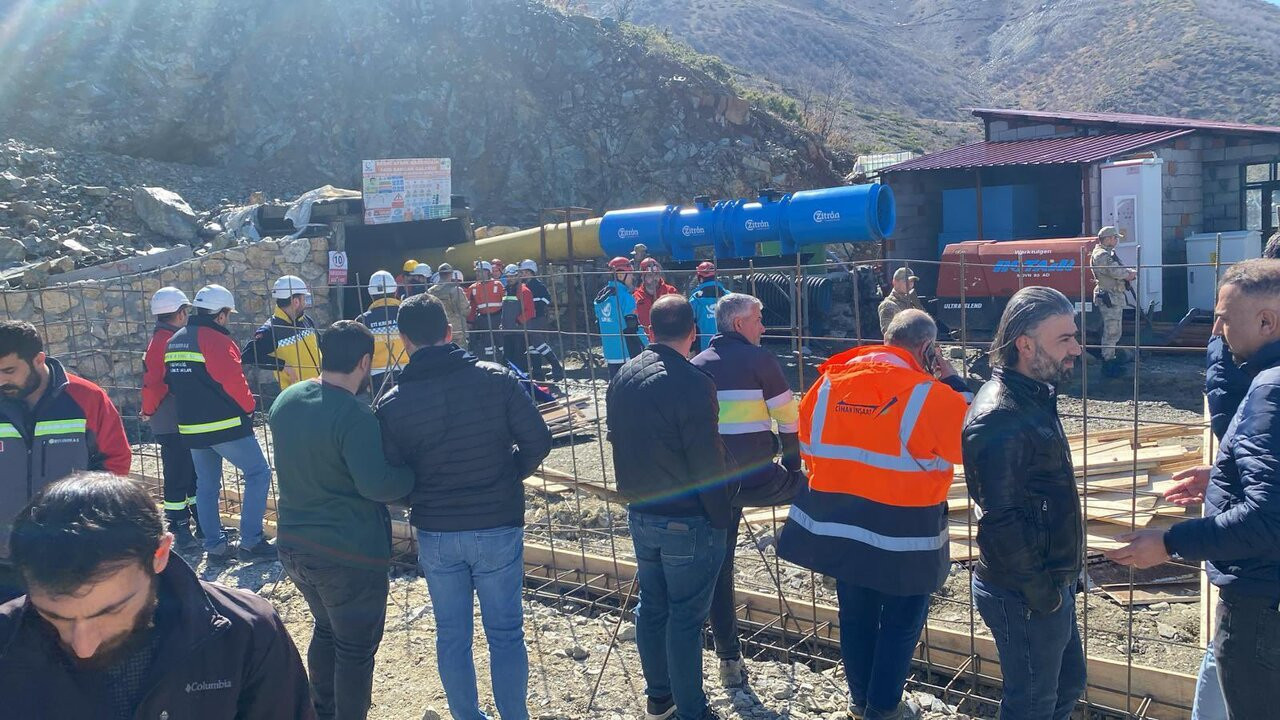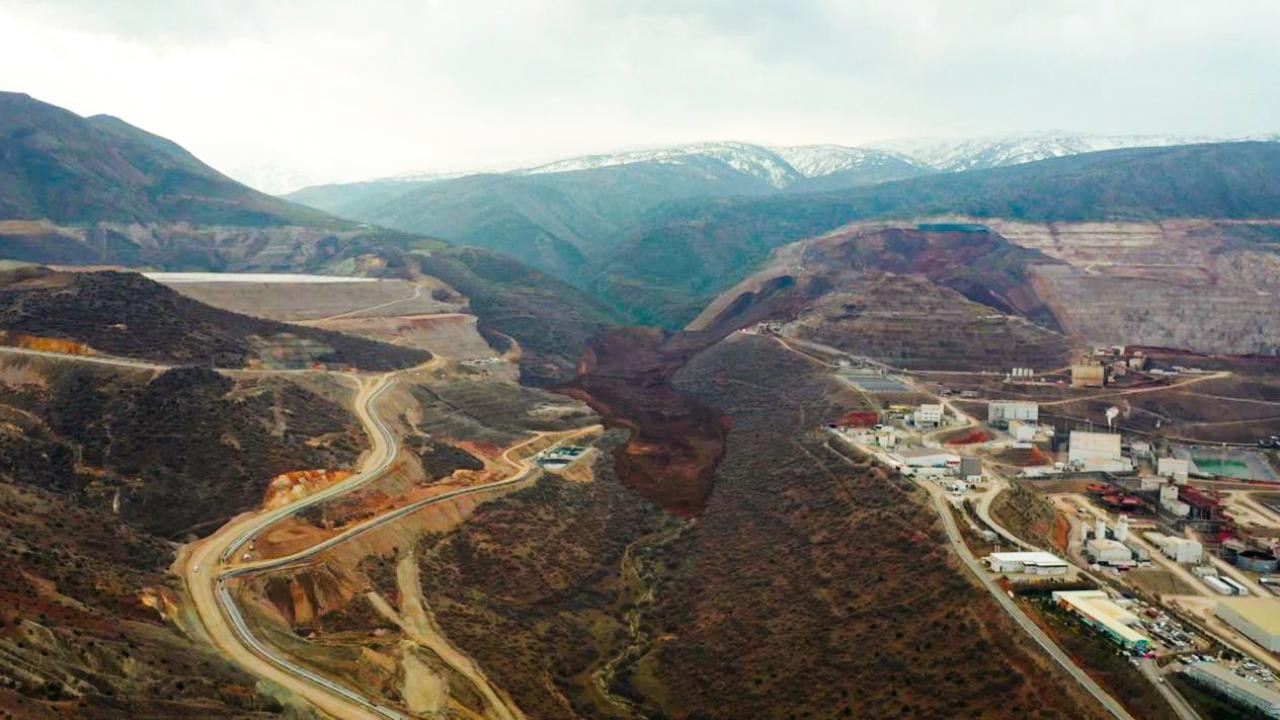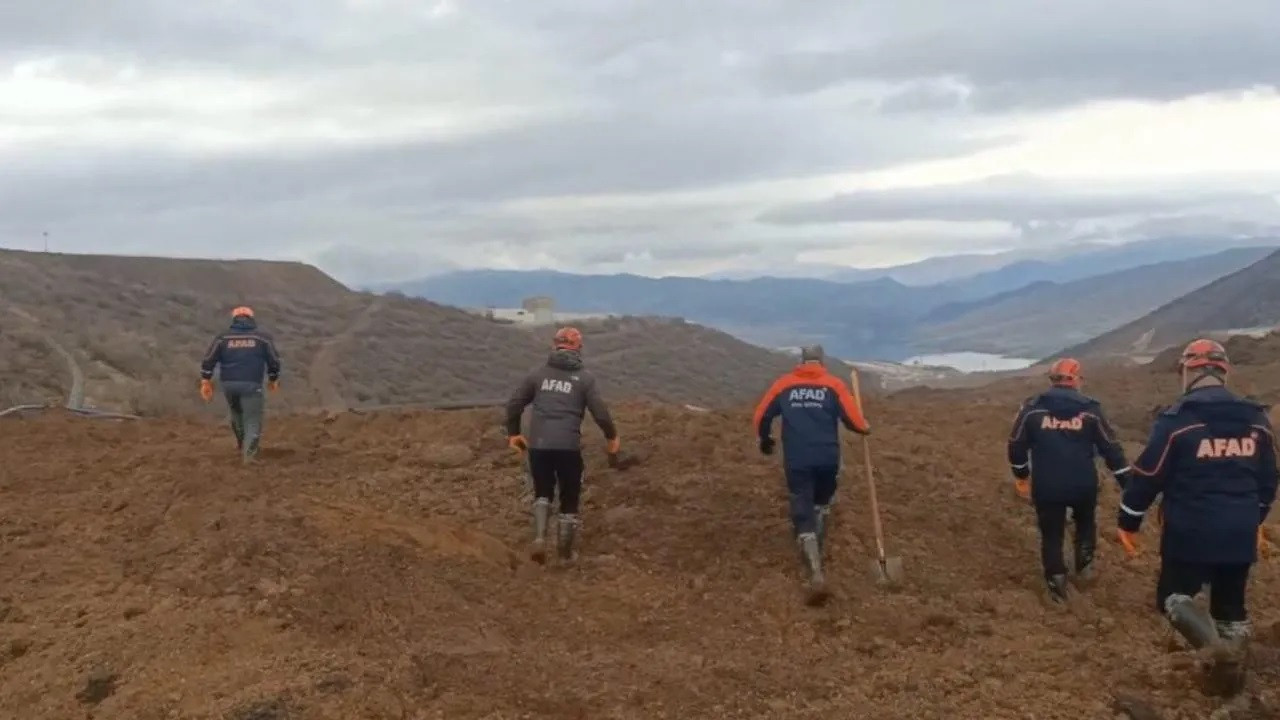Worker in Turkey’s collapsed mine hospitalized from suspected cyanide poisoning
A worker cleaning up the collapsed leach heap at the Çöpler Mine of Turkey’s eastern Erzincan province has been hospitalized with nausea, vomiting, and fainting, raising suspicions of cyanide poisoning. Cyanide-laden soil collapsed at the mine on Feb. 13 and trapped nine workers who have not yet been found.
Duvar English
A worker at the recently collapsed Çöpler Mine in Turkey’s eastern Erzincan province on Feb. 27 was hospitalized for fainting after nausea and vomiting complaints. He worked on the clean-up efforts at the cyanide-laden waste soil heaps in the mine.
According to reporting by the online news outlet Medyascope, workers were transferring the collapsed soil late at night when the worker fainted.
He was taken to the İliç Public Hospital and then transferred to the university hospital of the province.
Hospital officials stated that they took the worker’s vitals and bloodwork. The worker was in good condition, and tests for cyanide poisoning came back negative according to the university hospital.
However, workers at the mine clean-up complained of a strong odor at the work site which caused headaches. The workers were worried about the health risks of potential cyanide exposure.
Headache, nausea, and vomiting are among the symptoms of cyanide poisoning. Exposure to critical amounts can lead to loss of consciousness, seizures, and death according to the Centers for Disease Control (CDC).
Energy and Natural Resources Minister Alparslan Bayraktar stated that work to remove the risk of another landslide was ongoing at the mine.
Search and rescue efforts stopped at the mine on Feb. 20 due to the risk of further landslides.
On Feb. 13, the landslide at Çöpler Gold Mine, operated by Anagold Mining Company, trapped nine workers, leading to cyanide leakage from a mountain where the company had been storing chemical waste in Erzincan’s İliç district. The mine's license has since been revoked by the Environment, Urbanisation, and Climate Change Ministry.
After the disaster struck on Feb. 13, workers stated that the company had known about the landslide risk as visible cracks formed in the waste soil heaps.
The immediate environmental impact of the disaster was apparent when birds were seen fainting around the cyanide basin after the landslide, as they landed at the site assuming it was water.
Experts and opposition have been warning about the dangers of the mine since its foundation in 2009. In June 2022, a pipe containing cyanide also burst in the mine, leading to the discharge of waste into the Euphrates River.
However, the mine site was approved to be expanded by the Ministry after the leakage.


 Second mining accident strikes Turkey in two weeksDomestic
Second mining accident strikes Turkey in two weeksDomestic Scientists determine heap leach caused landslide in Turkish mine 70 pct higher than maximumDomestic
Scientists determine heap leach caused landslide in Turkish mine 70 pct higher than maximumDomestic Search operation at Çöpler Gold Mine halted due to risk of new landslideEnvironment
Search operation at Çöpler Gold Mine halted due to risk of new landslideEnvironment